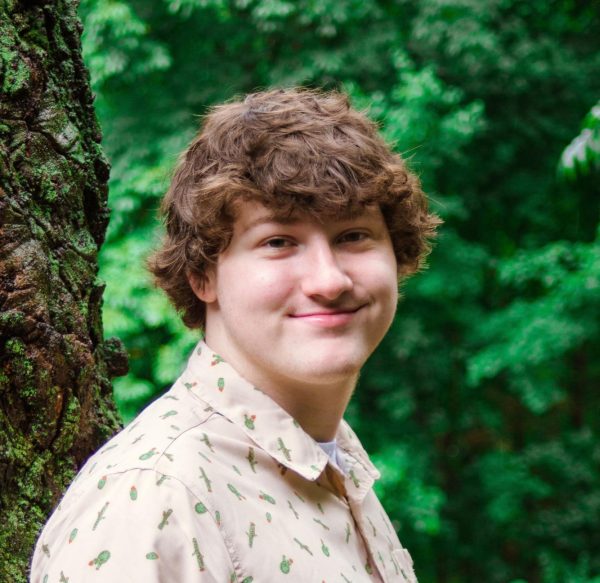The Kent Stater hopes to encourage lively debate about today’s issues in our Opinion section. To submit an opinion piece for potential publication, email your article to [email protected].
I have watched all 40 episodes of “Gravity Falls” about seven times since it first aired on Disney XD back in 2012. It was my favorite show when I was a kid, and it still is today.
I think nostalgia has something to do with it, yet I always find myself laughing harder at the cartoon’s antics as a 20-year-old compared to when I was 12. There’s something so charming about watching cartoons as an adult. To me, it shows that the innate sense of childlike wonder never truly leaves us.
Most cartoons have a way of being specifically catered to people of all ages. Shows like “Gravity Falls” were made to be enjoyed by children and adults alike.
On one hand, it’s a child-appropriate show with fun humor and colorful animation. Meanwhile, it has a rich, divisive story and humor that’s not exactly inappropriate for a younger audience, but is written for adults in a way that only they would understand. There are jokes hidden in the background, cryptic messages and layered references that you don’t catch as a kid, but they hit perfectly when you’re older.
“Gravity Falls” isn’t the only cartoon that does this. For example, “Adventure Time” evolves drastically over the course of the series. It goes from goofy one-off adventures to deeply philosophical episodes on loss, identity and the point of existence. What starts as a bizarre, colorful fantasy becomes a surprisingly mature exploration of growth and change.
Then there’s “Avatar: The Last Airbender,” which aired on Nickelodeon and offered a level of emotional depth and political commentary that few shows, animated or not, even touch.
As a kid, I was amazed by the bending and the battles. As an adult, I’m struck by its nuanced characters, themes of redemption and trauma and respect for viewer’s intelligence.
Even more offbeat comedies like “Phineas and Ferb” or “The Amazing World of Gumball” sneak clever writing into their zany plots. What makes these shows so interesting is how well they walk the line between simple and smart.
You can enjoy shows like these at any age, but the experience evolves with you. You laugh at different things, notice subtler moments and suddenly realize just how much thought went into crafting these “kids” shows.
Rewatching cartoons as an adult is more than just reliving the past, it’s a reminder that joy, imagination and storytelling go beyond age. These shows taught us how to wonder.
“Gravity Falls” might’ve been my cornerstone, but it opened the door to an entire world of animation that changed how I see storytelling. Shows like “Steven Universe” introduced me to themes of identity, queerness and emotional maturity, which were all wrapped up in songs and sparkling gems.
As a kid, I saw colorful characters with cool powers. Now, I see a story of trauma, forgiveness and chosen family. It’s not an exaggeration to say that watching it through adult eyes makes the emotional beats hit even harder than before.
Then there’s “Over the Garden Wall,” a short mini-series that’s almost like a fairytale written with autumn and melancholy ink.
It aired once and stayed with me forever. It’s eerie and beautiful, with a story that’s surprisingly haunting. Watching it as a teenager, I liked the vibe. Watching it again in my twenties, I understood the fear of growing up, being lost and wanting to return to something you can’t quite name.
Even cartoons that don’t seem to strive for depth, like “SpongeBob SquarePants” have aged like fine wine. As a kid, SpongeBob was silly and hyper. Now, as an adult, I laugh at Squidward’s existential dread and Mr. Krabs’ questionable business ethics. The absurdity of it all hits on a totally different level when you’ve lived through some of the stressors it’s making fun of.
What all of these shows have in common is that they don’t talk down to their audience. They respect that kids are capable of understanding complex feelings, and they know that adults never really stop needing the things we loved when we were young.
There’s comfort in animation’s freedom, its imagination and its sincerity. It’s a place where rules bend, where emotions take shape and where magic is real.
I think that’s why I keep coming back to these cartoons. Not just for the nostalgia, but for the way they allow me to see storytelling. They remind me that it’s okay to feel, be silly and seek joy in the smallest things.
Cartoons taught me how to dream, and as I get older, they remind me not to stop.
Nicholas Keller is a columnist. Contact him at [email protected].


